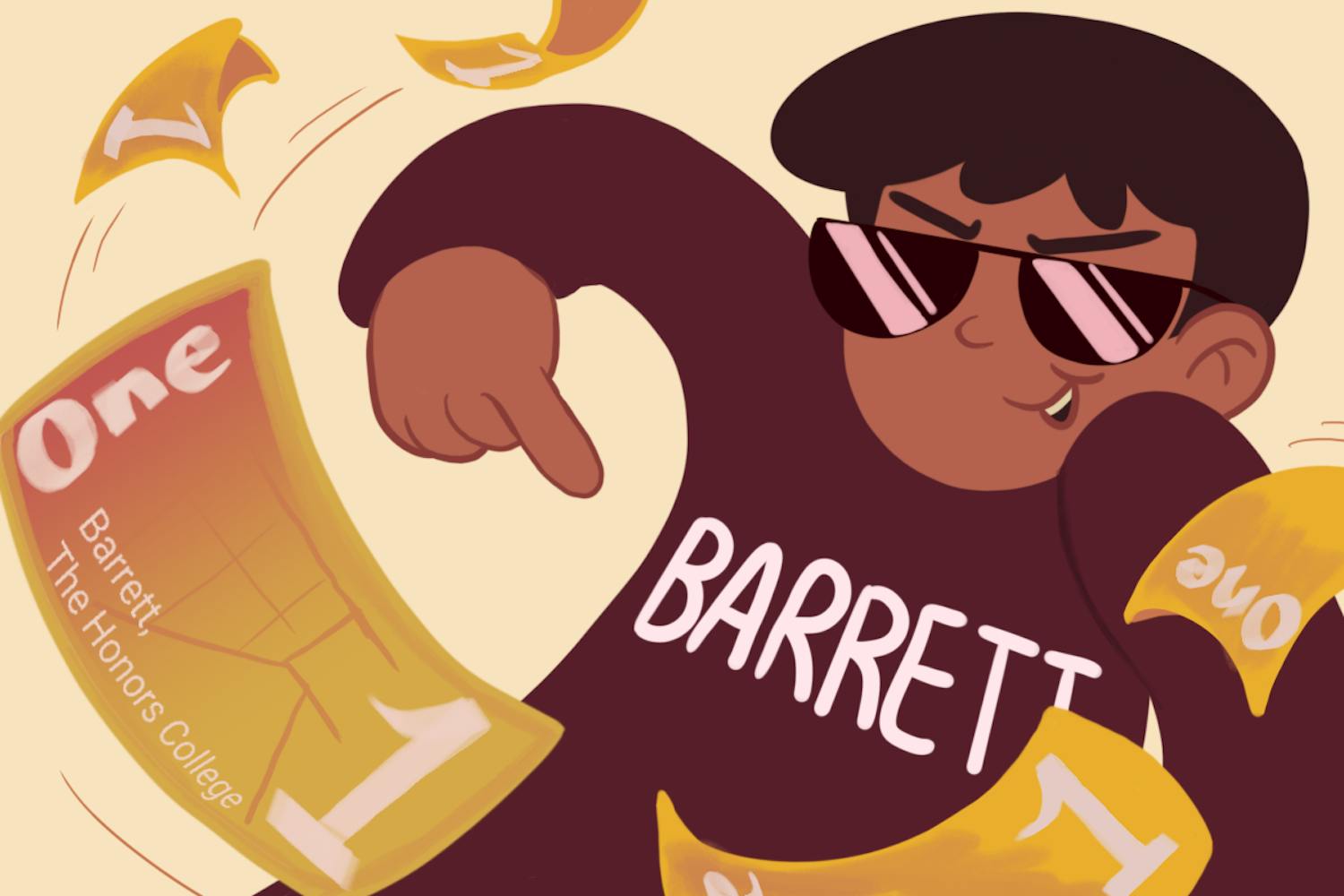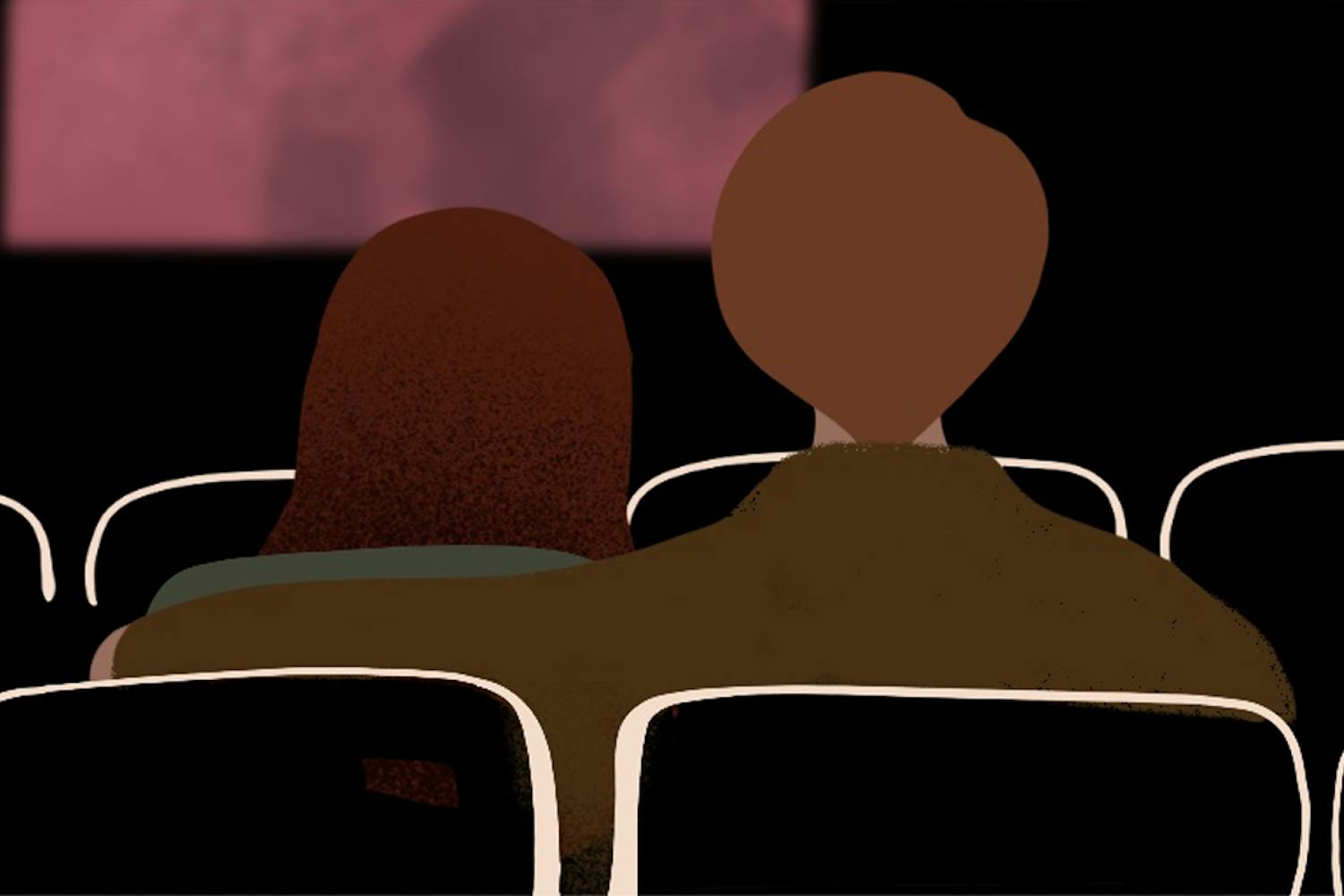Jim Helman, the head of Downtown Phoenix Church stands outside Taylor Place on the downtown Phoenix campus every Tuesday with his dog, hoping to chat with students.
At ASU, it is difficult to walk on campus without running into tabling by the University's various clubs, including several religious organizations. These groups are almost always looking for new members, a challenging task due to the dropping numbers of college students going to church.
Pew Research Center reported in 2015 that the number of millennials who identify as unaffiliated is growing, rising by almost 9 percent from 2007 to 2015. This group now makes up around a third of the Millennial generation.
Caitlyn Brooner, a sophomore studying exercise and wellness, stands with Helman every Tuesday. She said that when students are not too busy to stop, they tend to open up.
"Some people (do not stop), but they look like they are in a rush,” she said. “Some people think there's a catch, but when you explain there isn't, they are more open.”
Hanna Weidhaas, a senior studying accounting and the president of Young Life Tempe, said college is a difficult place to do outreach because of the low amount of college students who go to church, but she believes what Young Life does is important because it can make ASU "smaller and more manageable."
Weidhaas said the club prints 5,000 flyers at the beginning of each year, and it runs its outreach by tabling on Tuesday and Thursday, since those are the Tempe campus's busiest days.
Weidhaas, who joined Young Life four years ago, said religion has always been important to her.
“When I got to college, I loved the environment Young Life gave me,” she said. “It's different than other church groups because we aren't a church. (We are) just a group of people who believe in the same thing."
Weidhaas said she thinks the reason college students can be hesitant to stop at the tables is because of their busy schedules.
Even though it is difficult to do the outreach, seeing a student come to the club meetings is a great feeling, she said.
"You feel great about that (bringing people together),” she said. "It's hard to take credit because God does it … It's something I want to do for the rest of my life.”
Noah Jaeger, who has been working for Christian Challenge as a campus missionary for three years on three different college campuses, said it is important to get students' attention.
"We try to get people's attention. You kind of have to," he said. "People aren't thinking 'I’m going to talk to a club today,' so we use a whiteboard as a way to get people’s attention with a question of the day."
Allyson Asmus, a freshman studying nursing, said she has never stopped to talk to one of the religious groups.
“I honestly don’t have time,” she said. “I don’t mean to be rude to them, but I am just so focused on other things”
Asmus also said she thinks there is a stigma surrounding the groups on campus.
“It probably has a lot to do with the stigma of someone standing on the street with a flyer,” she said. “People might not take it seriously, but it also depends how they approach you.”
She also said that as a freshman, seeing people with flyers in general can be a bit overwhelming in a new environment.
“Sometimes you see them from 10 feet away and get anxious for no reason,” she said. “Even though what they are saying is good, you just go ‘ahh.’”
Margarete Nasir, who is also a campus missionary for Christian Challenge, said that while her work is generally received positively, the response can vary depending on location.
"On the Tempe campus, we will get students who are little more argumentative with us versus the students (downtown), who tend to have more philosophical conversations with us," she said.
Jaeger said tabling in Tempe was a completely different experience for him.
"Not as much here, but in Tempe, you have to get students attention," he said. "(Downtown) we are more likely to get students to write on the board. In Tempe, sometimes we get in their face, not in a bad way but like, ‘Hey, we’re here.'”
Nasir said students are constantly being sold things on campuses, and that could be a part of why they are reluctant to stop at tables.
"It’s hard because we want students to come and join us, not because we are selling them something, but because we care about them," she said.
Jaeger said he thinks students want to have these conversations but don't seek them out.
“I feel like a lot people want to get into these conversations and want to have this discussion," he said. "It's just something that isn’t on their radar. Getting their attention isn't a disruption to their day necessarily."
Reach the reporter at ajhowar6@asu.edu and follow @andrew_howard4 on Twitter.
Like The State Press on Facebook and follow @statepress on Twitter.




